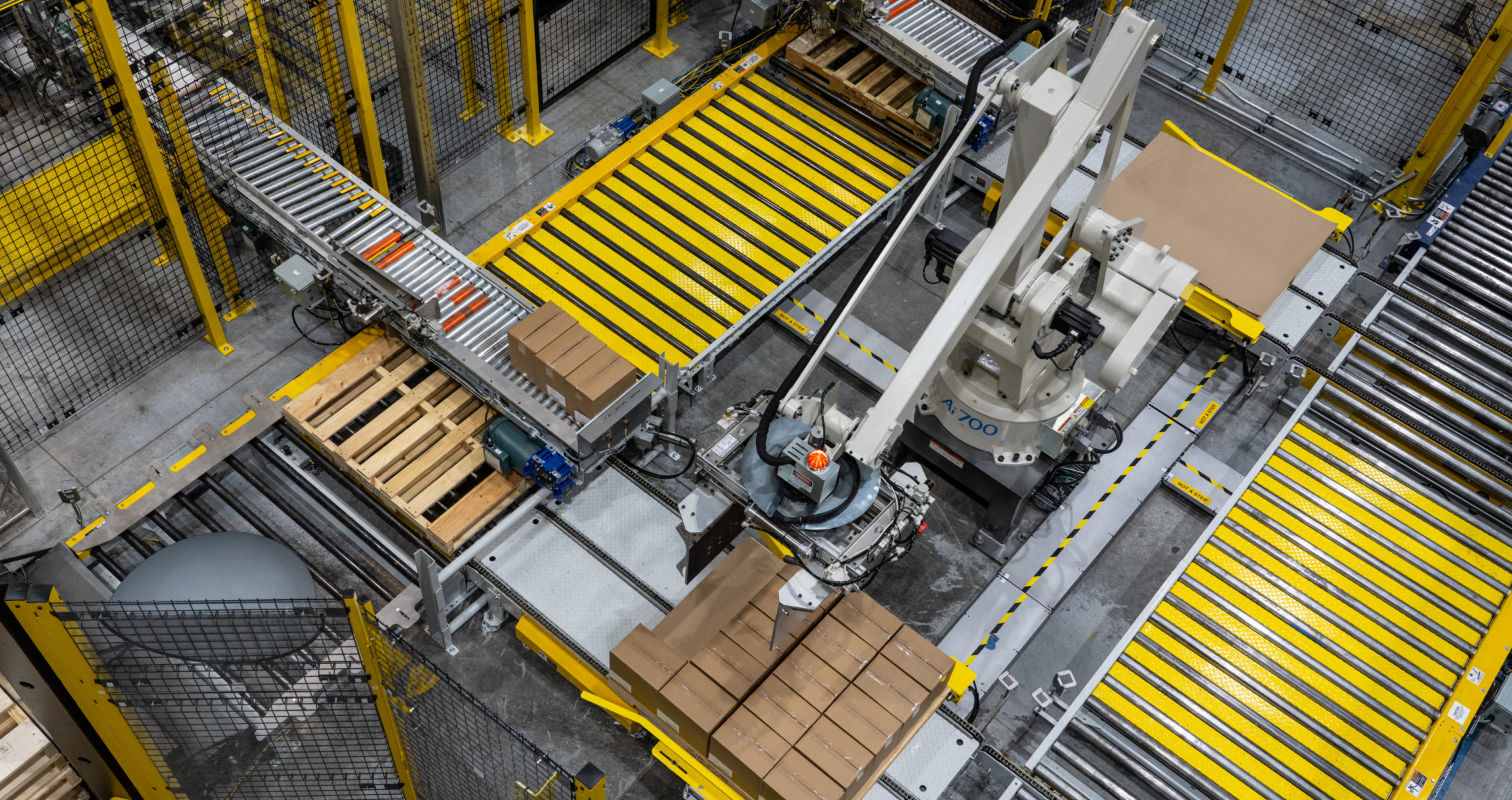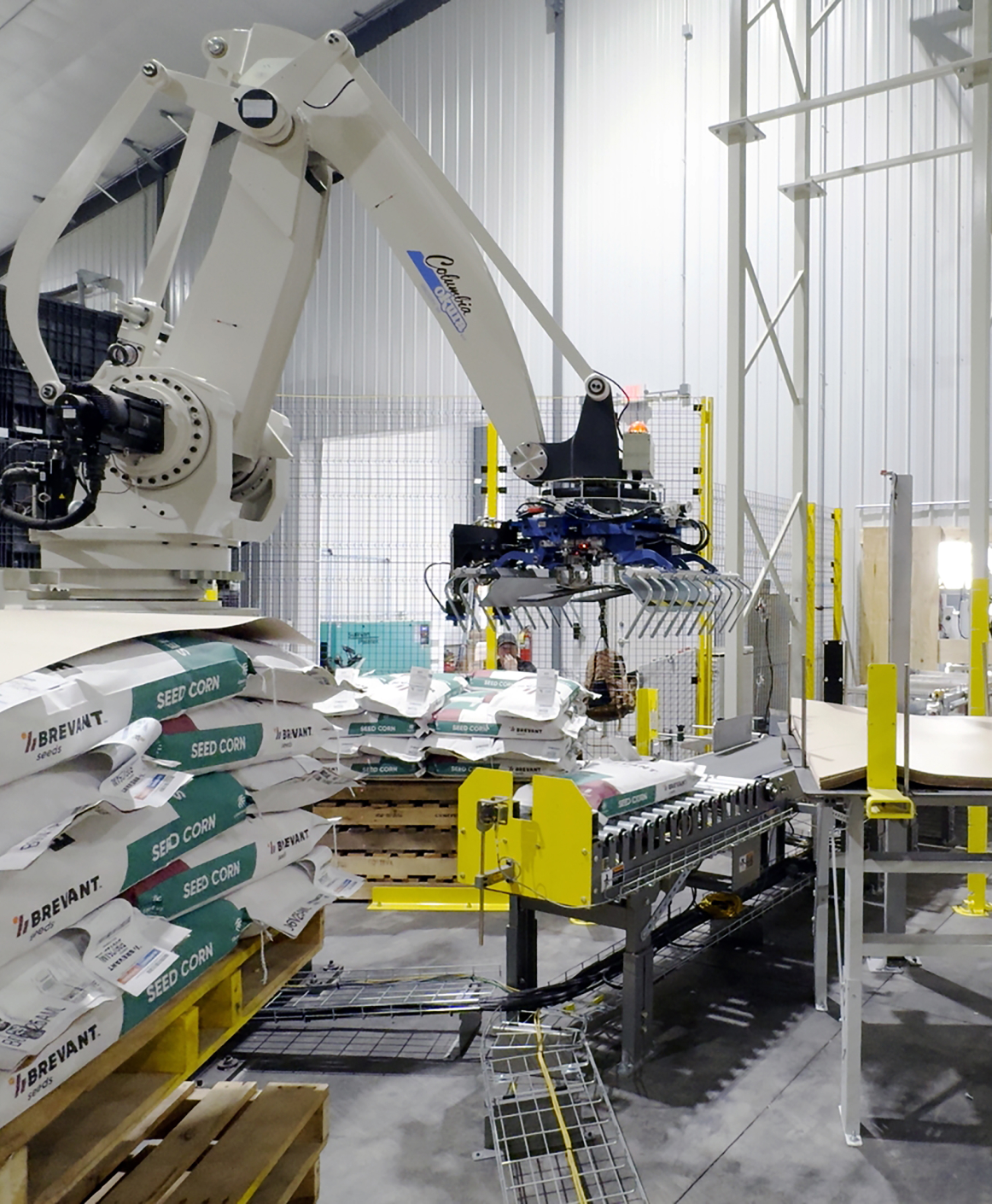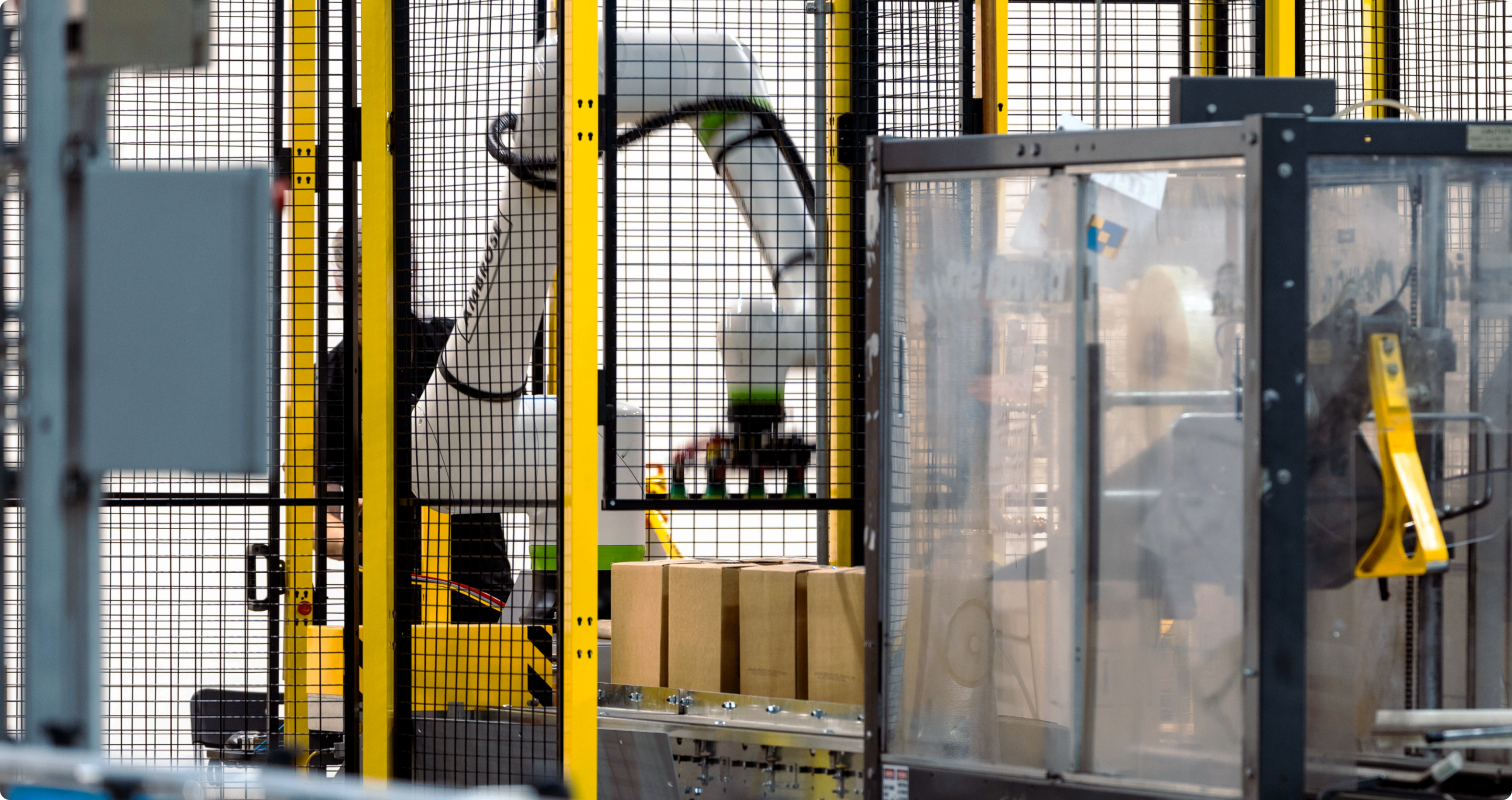7 Essential Things to Consider When Choosing a Palletizer
7.9.2024
0

Streamlining operations with the right palletizer
Investing in an automatic palletizer significantly enhances efficiency, productivity, and safety in manufacturing and packaging operations. Manual palletizing can be labor-intensive and prone to errors, making automated solutions an essential upgrade. To select the best palletizer for your facility, consider these seven critical factors:

1. Product Suitability and Compatibility
Not all palletizers are created equal—different models serve different product types. Evaluate:
- Product dimensions, weight, and packaging format.
- Whether you require a conventional (row-forming) palletizer for uniform goods or a robotic palletizer for irregular shapes and flexible handling.
2. Palletizing Speed and Throughput
Assessing your required output is essential. Key considerations include:
- The number of cases, bags, or boxes you need palletized per minute.
- The necessity for high-speed components to match production demands.
- How your upstream processes may impact palletizing speed and efficiency.
3. Flexibility for Handling Multiple SKUs
Most facilities manage a variety of products and package formats. Look for:
- Easy changeover and programmable settings for quick transitions between SKUs.
- Versatility to handle diverse product sizes and stacking patterns without downtime.
4. Facility Space and Environmental Conditions
Palletizer solutions vary in size and suitability for different environments. Evaluate:
- Available floor space and layout integration.
- Environmental factors such as temperature, humidity, dust, and cleanliness requirements.
- Energy and compressed air consumption requirements.

5. Load Stability and Integration with Packaging Systems
Ensuring secure and stable pallet loads is crucial to prevent product damage. Your palletizer should:
- Support various stacking patterns for optimal stability.
- Integrate seamlessly with stretch wrapping, strapping, or other load-securing systems.
- Allow easy pallet removal via conveyors or forklifts to maintain workflow efficiency.
6. Level of Automation and Operator Interaction
Consider how automated your palletizing process needs to be:
- Fully automated solutions offer maximum efficiency with minimal human intervention.
- Semi-automated palletizers balance automation with operator involvement.
- Evaluate essential safety features like sensors, guards, emergency stops, and ease of operator use and training.
7. Long-Term ROI and Ease of Maintenance
Invest in a palletizer that offers long-term benefits beyond initial installation, focusing on:
- Durability, reliability, and ease of ongoing maintenance.
- Availability of technical support, training, and spare parts.
- Energy-efficient designs that lower overall operating costs.
Find Your Ideal Palletizing Solution with Ambrose
Choosing the right palletizer significantly boosts efficiency, reduces costs, and ensures long-term operational success. Ambrose provides custom palletizing solutions explicitly tailored to your facility’s unique needs.
📞 Contact Ambrose today to discuss how our palletizing solutions can optimize your operations.
Find your ideal solution with Ambrose
Contact us today to explore how our high-quality palletizing solutions can maximize your productivity and profitability.
Get started
Get started
Get started
